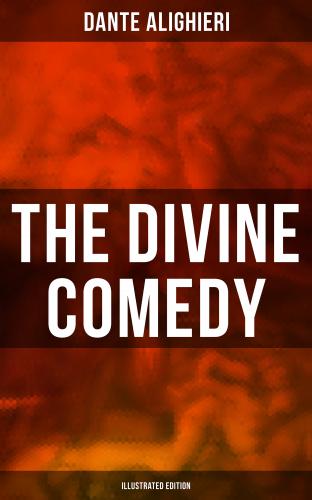Thou canst not miss at last a glorious haven:
Unless in fairer days my judgment err’d.
And if my fate so early had not chanc’d,
Seeing the heav’ns thus bounteous to thee, I
Had gladly giv’n thee comfort in thy work.
But that ungrateful and malignant race,
Who in old times came down from Fesole,
Ay and still smack of their rough mountain-flint,
Will for thy good deeds shew thee enmity.
Nor wonder; for amongst ill-savour’d crabs
It suits not the sweet fig-tree lay her fruit.
Old fame reports them in the world for blind,
Covetous, envious, proud. Look to it well:
Take heed thou cleanse thee of their ways. For thee
Thy fortune hath such honour in reserve,
That thou by either party shalt be crav’d
With hunger keen: but be the fresh herb far
From the goat’s tooth. The herd of Fesole
May of themselves make litter, not touch the plant,
If any such yet spring on their rank bed,
In which the holy seed revives, transmitted
From those true Romans, who still there remain’d,
When it was made the nest of so much ill.”
“Were all my wish fulfill’d,” I straight replied,
“Thou from the confines of man’s nature yet
Hadst not been driven forth; for in my mind
Is fix’d, and now strikes full upon my heart
The dear, benign, paternal image, such
As thine was, when so lately thou didst teach me
The way for man to win eternity;
And how I priz’d the lesson, it behooves,
That, long as life endures, my tongue should speak,
What of my fate thou tell’st, that write I down:
And with another text3 to comment on
For her I keep it, the celestial dame,
Who will know all, if I to her arrive.
This only would I have thee clearly note:
That so my conscience have no plea against me;
Do fortune as she list, I stand prepar’d.
Not new or strange such earnest to mine ear.
Speed fortune then her wheel, as likes her best,
The clown his mattock; all things have their course.”
Thereat my sapient guide upon his right
Turn’d himself back, then look’d at me and spake:
“He listens to good purpose who takes note.”
I not the less still on my way proceed,
Discoursing with Brunetto, and inquire
Who are most known and chief among his tribe.
“To know of some is well;” thus he replied,
“But of the rest silence may best beseem.
Time would not serve us for report so long.
In brief I tell thee, that all these were clerks,
Men of great learning and no less renown,
By one same sin polluted in the world.
With them is Priscian, and Accorso’s son
Francesco4 herds among that wretched throng:
And, if the wish of so impure a blotch
Possess’d thee, him thou also might’st have seen,
Who by the servants’ servant was transferr’d
From Arno’s seat to Bacchiglione, where
His ill-strain’d nerves he left. I more would add,
But must from farther speech and onward way
Alike desist, for yonder I behold
A mist new-risen on the sandy plain.
A company, with whom I may not sort,
Approaches. I commend my TREASURE to thee,
Wherein I yet survive; my sole request.”
This said he turn’d, and seem’d as one of those,
Who o’er Verona’s champain try their speed
For the green mantle, and of them he seem’d,
Not he who loses but who gains the prize.
Footnotes
1 A part of the Alps where the Brenta rises, swollen by melting snows.
2 “Ser Brunetto, a Florentine, the secretary or chancellor of the city, and Dante’s preceptor, hath left us a work so little read, that both the subject of it and the language of it have been mistaken. It is in the French spoken in the reign of St. Louis, under the title of ‘Tresor’; and contains a species of philosophical lectures.”
3 “With another text.” He refers to the predictions of Farinata, in Canto x.
4 “Francesco.” Accorso, a Florentine, interpreted the Roman law at Bologna, and died in 1229, at the age of 78. His authority was so great as to exceed that of all the other interpreters, so that Cino da Pistoia termed him the Idol of Advocates. His sepulchre, and that of his son Francesco here spoken of, is at Bologna, with this short epitaph: “Sepulcrum Accursii Glossatoris et Francisci eus Filii.”
Canto XVI
ARGUMENT.—Journeying along the pier, which crosses the sand, they are now so near the end of it as to hear the noise of the stream falling into the eighth circle, when they meet the spirits of three military men; who judging Dante, from his dress, to be a countryman of theirs, entreat him to stop. He complies and speaks with them. The two Poets then reach the place where the water descends, being the termination of this third compartment in the seventh circle; and here Virgil, having thrown down into the hollow a cord, wherewith Dante was girt, they behold at that signal a monstrous and horrible figure come swimming up to them.
NOW came I where the water’s din was heard,
As down it fell into the other round,
Resounding like the hum of swarming bees:
When forth together issu’d from a
